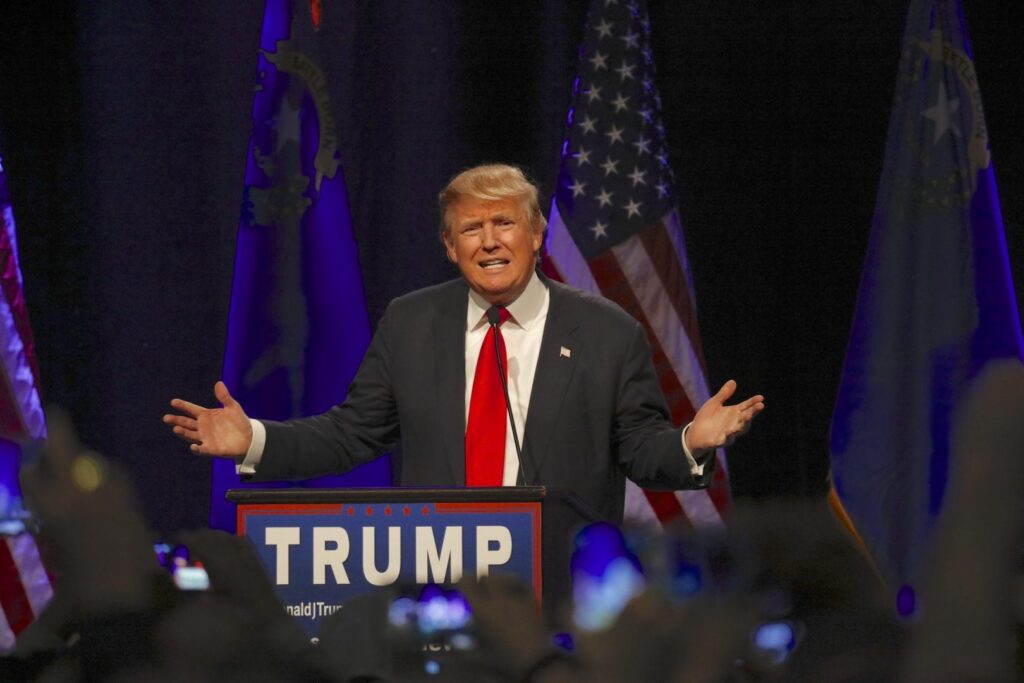Former President Donald Trump ignited debate with recent comments endorsing aggressive policing tactics to combat crime. His remarks during a Sept. 29 campaign speech in Pennsylvania have drawn criticism from various communities and raised concerns about potential impacts on civil rights.
Trump veered from policy discussions to focus on debunked claims about rising crime rates under President Joe Biden’s administration. He suggested police should be permitted to use excessive force particularly in retail theft cases.
“See we have to let the police do their job” Trump stated implying law enforcement officers are currently restricted from necessary actions. He described alleged thefts claiming individuals brazenly steal items like air conditioners and refrigerators from stores.
Trump’s comments were met with applause from supporters. He asserted police officers fear losing jobs and pensions due to restrictions imposed by the “liberal left.”
“One rough hour and I mean real rough the word will get out and it will end immediately” he proclaimed suggesting a violent crackdown would deter crime. This statement drew parallels to fictional scenarios where crimes are temporarily permitted raising alarms about such rhetoric’s implications.
The reaction has been swift and critical. Many observers express concern that endorsing police brutality could lead to increased violence and erode community trust in law enforcement. Critics argue such rhetoric undermines policing reform efforts and perpetuates a cycle of violence disproportionately affecting marginalized communities.
It’s essential to understand the broader context of crime and policing in America. While crime rates have fluctuated the conversation around policing has shifted significantly especially following the Black Lives Matter movement and widespread protests against police brutality. Many advocates argue for a more nuanced approach to crime prevention prioritizing community engagement and social services over aggressive policing tactics.
In light of Trump’s comments voters are urged to critically assess the implications of such rhetoric on their communities. The call for “tough on crime” policies often overlooks systemic issues contributing to crime such as poverty lack of access to education and inadequate mental health services.
As the presidential race intensifies voters especially within the African American community are encouraged to engage in thoughtful discourse about candidates’ statements and policies. The endorsement of aggressive policing tactics is not just a political talking point; it has real-world consequences that can affect community safety and well-being.
Advocates for police reform stress the importance of policies promoting justice accountability and community safety without resorting to violence. They argue that improving police-community relations and addressing root causes of crime are more effective long-term strategies than harsh crackdowns.
Civil rights organizations have expressed alarm at the potential normalization of excessive force in policing. They emphasize the need for continued efforts to address systemic racism and bias in law enforcement practices.
Law enforcement experts caution against oversimplified solutions to complex crime issues. Many police departments have been working to implement more community-oriented policing strategies focusing on building trust and cooperation with residents.
Political analysts note that Trump’s rhetoric may appeal to his base but could alienate moderate voters concerned about civil liberties and police accountability. The impact of these comments on the broader electorate remains to be seen.
As the election approaches voters are encouraged to stay informed about candidates’ positions on criminal justice reform and policing policies. Understanding the nuances of these issues is crucial for making informed decisions at the ballot box.
The debate sparked by Trump’s speech underscores the ongoing national conversation about the role of law enforcement in society and the balance between public safety and civil rights. It serves as a reminder of the high stakes in the upcoming presidential election and the importance of voter engagement on these critical issues.




